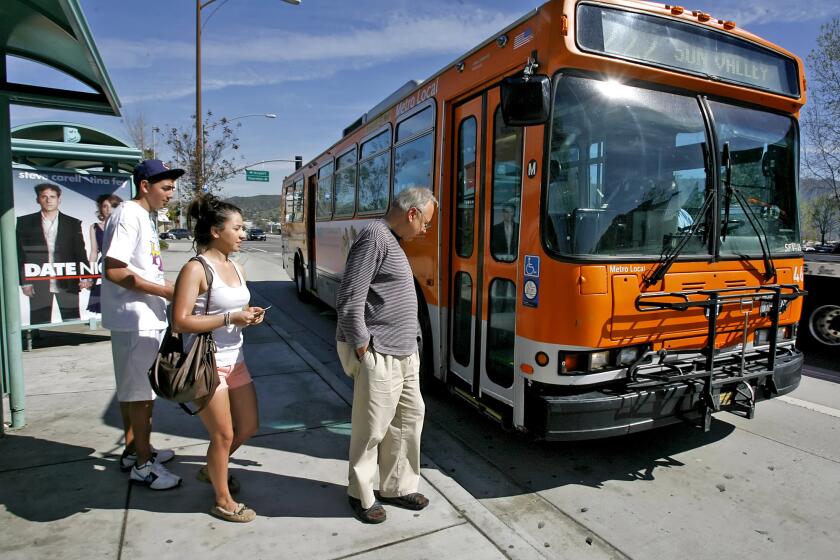LETTERS
THE RAIL THING
“Trains That Fly” (by Lewis Beale, May 2) is an excellent report of what is being built or planned all over the country, but I feel as though I have read it before, more than 20 years ago. At that time the aerospace industry was experiencing more than just its periodic downturn, and many companies turned their attention to rapid transit to broaden their bases. The company I worked for quickly established a good transit-engineering reputation. It built the LIM (linear induction motor) bullet train, which reached a speed of 255 miles an hour on the test track. Its purpose was to prove the viability of that motor, which I believe it did. Its fate? It was quietly sidled into a museum. Then there was the State of the Art Car, which included a number of new ideas for the Northeast Corridor. It worked well but suffered the same destiny as the LIM. How much of the above history will be repeated with the new bright hopes described in Beale’s report? Governments are not always noted for their staying power when it comes to new ideas. HENRY H. CHARY Rancho Palos Verdes
I just returned from Japan, where I traveled on the bullet train--safely (not one accident in 30 years) and comfortably. From start to destination, covering nearly the distance between L.A. and San Francisco in less than three hours, I felt relaxed and ready to work. No travel on any airline has ever seemed that easy. BARBARA CRANE Long Beach
Can you imagine a speedy train running from San Diego to Seattle, with stops along the coastal cities? I’m 72. It probably won’t happen in my lifetime--but I hope it does. FRAN KRONICK Santa Monica
Good grief! How embarrassing that there had to be three pages on the snail’s-pace growth of intercity high-speed rail in America. “Congress has to be convinced,” says Sen. Frank R. Lautenberg (D-N.J.). I’d guess that everyone in Congress has ridden trains in Europe or Japan. What could be more convincing? Just do it! Or would that be too un-American? LYNN BALSAMO Santa Monica
Where does American Automobile Assn. spokesman Richard F. Hebert get off saying that if there’s a market for high-speed rail, the users should pay for it? Do automobile users pay for highways or the CHP? Do airplane users pay for airports? (Airlines do pay for landing gates, but those payments amount to only a fraction of an airport’s expenses.) Why, then, should high-speed rail users pay all the cost of railroads, which, like highways, are a public asset and reduce wear and crowding on highways and at airports? And how dare the auto club assume that its members want their dollars spent in favor of cars? Most people get a club card to have someone to jump-start or tow their car, not because they’d rather drive than switch. ALEX EPSTEIN Los Angeles
Beale’s story fails to mask the exorbitant taxpayer-subsidized costs of commuter rail. Missing was the overwhelming voter rejection of the most recent attempt at pork barreling, Proposition 156. France, Germany, Sweden, Spain and Japan keep their gasoline prices high with exorbitant taxes, which are then skimmed off to make their commuter rail systems a socialist success. Even with the 300% tax on gasoline, rail ridership in Europe is declining and auto purchases are increasing. Lautenberg ignores the financial facts that the average taxpayer subsidy for each rail commuter would buy a Cadillac and pay for the chauffeur to go with it. Let the rail commuters pay the full cost of their tickets, as do the auto commuters, and watch them scurry back to their cars. HUGH BROESAMLE Costa Mesa
Lewis Beale responds: All mass transportation is subsidized to a certain extent. It’s the nature of the beast. News accounts in the New York Times and the Chicago Tribune, among others, indicate that rail ridership in Europe is not declining. France and Sweden are already planning and/or constructing new high-speed lines; Italy and Spain will soon follow.
X + SEXISM
Regarding Margy Rochlin’s story about the tenure case at the University of California at Berkeley (“The Mathematics of Discrimination,” May 2), Jenny Harrison’s case is not unique in a society that discourages women in academia. Women are clustered in the lower faculty ranks, earning less than their male peers at all levels. They constitute a mere 30% of the country’s full-time faculty, and only 46% are tenured, compared to 70% of all male faculty members. There are only four tenured women in the “top 10” math departments in the United States. Tenure and promotion review committees often hold women to a higher standard of scholarship than their male counterparts. Rochlin quoted Harrison’s former colleagues as wondering “why she couldn’t have just taken the blow and moved on.” Indeed, Harrison broke several unwritten rules of the conservative academia by refusing to do just that. Perhaps that’s what upset the Berkeley math department most. The American Assn. of University Women’s Legal Advocacy Fund has supported Harrison in her lawsuit, because we believe that hers was a case of pure sex discrimination. The reasons offered by Berkeley for denying her tenure simply don’t add up. SUSAN REDDY BUTLER, PRESIDENT AAUW LEGAL ADVOCACY FUND La Mirada
Like Harrison, I am a mathematician and a woman. I, too, have been a member of the UC Berkeley mathematics department. My experience differed sharply from hers. As a post-doctoral fellow, I was given an extraordinary measure of support and encouragement, most of it from Prof. Robion Kirby. Harrison’s allegation that Kirby believes that women belong at home and in the kitchen is absurd and offensive. In fact, Kirby is guilty not of sexism but of expressing an honest opinion about a colleague’s work. Mathematics depends on a passionate regard for truth. If we start to confuse honesty with sexism, the future of mathematics is bleak. ABIGAIL THOMPSON ASSOCIATE PROFESSOR, DEPARTMENT OF MATHEMATICS UC DAVIS
The problem here is that Harrison simply wasn’t good enough. Not everyone can play first string on the varsity. America’s sociopolitical system provides the right to try out, not a guarantee of inclusion or participation. Most men seem to learn that concept at an early age and live and prosper by it throughout their lives. I’m tired of the irritating, incessant whine from the women’s camps. Grow up, ladies! If you don’t wish to engage, then withdraw from the field. C. E. GRUBBS Newport Beach
The ferocity of academics battling for job security is a debilitating cancer that has pervaded the entire university system. It supplants academic freedom with academic tyranny and is far more worthy of investigation than the petty, internal squabbles that the Harrison incident epitomizes. PAUL THERRIO San Diego
Sign up for The Wild
We’ll help you find the best places to hike, bike and run, as well as the perfect silent spots for meditation and yoga.
You may occasionally receive promotional content from the Los Angeles Times.



